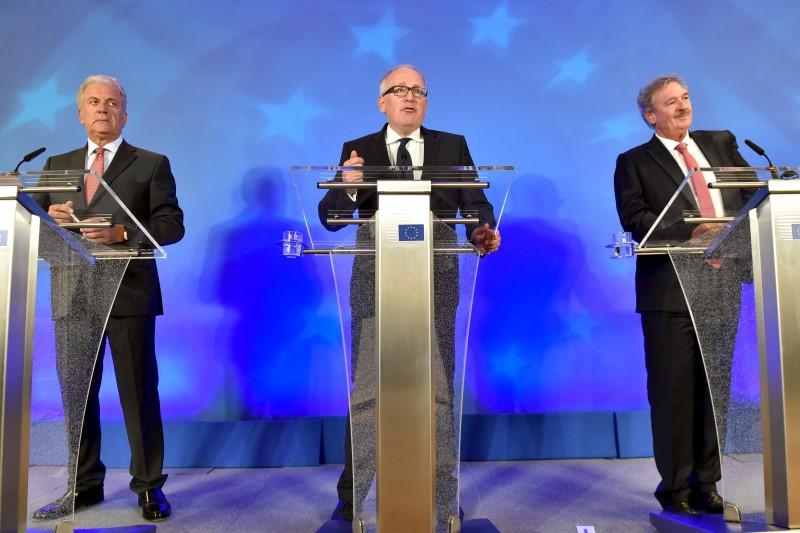EU falls short of consensus on refugee quotas

European Union governments fell short of a consensus on sharing the burdens of sheltering people fleeing war zones in the Middle East and Africa, as the refugee crisis assumed dimensions that overwhelmed even the bloc’s most advanced economies.
EU interior ministers signed off on existing plans to house 40,000 refugees but agreed only to the broad outlines of proposals to relocate an additional 120,000, as a cluster of eastern European countries continued to balk at a proposed quota system.
“The majority of the member states are ready to move forward, but not all,” EU Home Affairs Commissioner Dimitris Avramopoulos told reporters on Monday after the Brussels meeting. “We did not have the agreement we wanted.”
Germany’s prediction that it alone could be the destination for 1 million migrants in 2015 laid bare the scale of the crisis, which has turned the cross-continental wanderings of Syrians, Iraqis, Afghans and others into a test of Europe’s cohesion.
The meeting’s chairman, Luxembourg Foreign Minister Jean Asselborn, held out the prospect of forcing through a decision by a supermajority when the ministers next get together on Oct. 8 or possibly earlier. Alternately, a summit of EU leaders may be called.
Border controls
“This is a problem that will be with us for a long time,” Frans Timmermans, the European Commission’s principal vice president, said. “This is a problem that demands collective European action.”
The main migration routes shifted from the Mediterranean Sea to the western Balkans this year, with refugees making their way through Turkey and Greece up to Hungary with the goal of reaching the western European heartland. Hungary initially shunted the new arrivals westwards, then fenced off its border to prevent more coming in.
Across east-central Europe this week, Hungary’s eviction of refugees led to partial suspensions of Europe’s 20-year-old system of passport-free travel. Germany reimposed controls on its border with Austria on Sunday, a “temporary” step permitted by EU law.
Germany’s move highlighted the risk of Chancellor Angela Merkel’s open-door policy while some other EU leaders stand still. Merkel came under fire from political allies for straining Germany’s finances and social tolerance.
EU hotspots
Austria, the Czech Republic and Slovakia stepped up surveillance of their frontiers. Hungarian Prime Minister Viktor Orban told TV2 television that the cabinet will probably declare a state of crisis on Tuesday, which would allow the military to take an active part in border defense. Hungary plans on Tuesday to start deporting or imprisoning people who try to cross the border illegally.
Debate in Brussels focused on only a portion of the asylum seekers making their way across the Mediterranean Sea or via Turkey to the 28-nation EU. European governments remained at odds over how to distinguish the politically persecuted from those migrating to improve their economic lot.
Germany, France and Spain would take the biggest numbers of refugees, with scattered eastern opposition leaving the bloc short of the target of 120,000. Battling whether the quotas are voluntary or mandatory, the ministers pledged to make up the difference at the next meeting in October.
“This is a first important step, but the truth lies in the implementation,” German Interior Minister Thomas de Maiziere said. “All in all, it’s progress.”
EU financing will help Greece and Italy set up reception centers — known as “hotspots” in EU lingo — to register newcomers and make preliminary judgments on who is entitled to asylum.
Britain and Denmark invoked their special rights under European law to stay out of the quota system, though they are taking in refugees under other arrangements. Ireland, which enjoys the same exemption, opted in to the quotas.
[Bloomberg]





